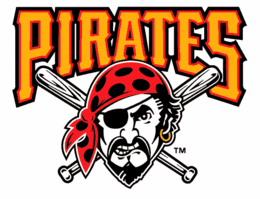
Bundy says no to Pirates
High school pitcher Dylan Bundy whose fastball reaches 100, has surged up draft boards and is regarded by some evaluators as the top talent in the draft.
There was previously some intrigue in him from the Pirates, with speculation that Bundy is Neal Huntington’s guy. Bundy fits the Pirates need of a pitcher getting to the majors quickly as some scouts reportedly predict Bundy can get to the majors by 2013.
The issue for the Pirates is that Bundy doesn’t want them to select him and his representatives made that known to them.
Yahoo’s Jeff Passan’s reports that Bundy doesn’t want to be drafted by the Pirates because of their strict limiations on Long-toss sessions.
According to Passan, about half the teams in baseball stick with a strict program that limits pitchers to straight-line throws at 120 feet and the Pirates are one of them.
Bundy works long-toss sessions in which pitchers throw the ball on an arc up to 300 feet in order to build up arm strength.
Bundy told the Pittsburgh Pirates, who own the No. 1 pick, and the Kansas City Royals, who pick fifth, that he’d prefer they not use their pick on him, according to the source. Seattle (picking second), Arizona (third and seventh) and Washington (sixth) all advocate long toss. Bundy’s older brother Bobby plays for Baltimore, which chooses fourth.
The Owasso, Okla., native surged to the head of the high school class this year thanks to a fastball that reached 100 mph this season, a beyond-his-years cutter and the sort of mature approach scouts believe can land him in the major leagues by 2013. Bundy’s ascent toward the end of the spring sent him to the top of at least one American League team’s draft board, according to a scouting director, and Baseball Prospectus’ Kevin Goldstein called him the top talent available.
Pittsburgh sent a cadre of evaluators to Oklahoma to talk with the 18-year-old and left with Bundy’s representatives advising the Pirates not to select him. One executive asked the Bundy camp whether its demand for a six-year, $30 million major league contract – nearly twice what Stephen Strasburg(notes) received two years ago – was to scare teams off. The answer was yes.
